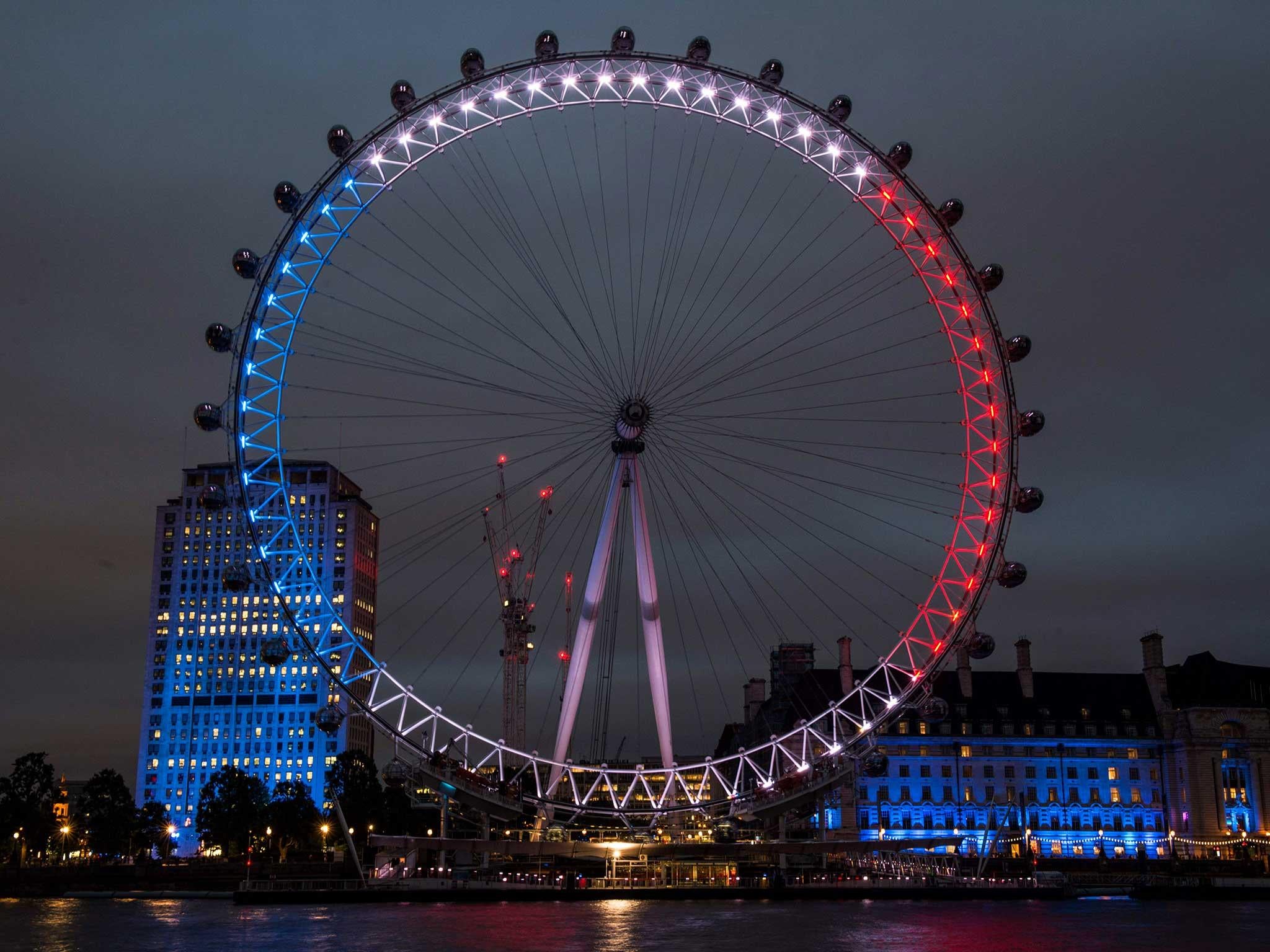Our governments must confront the greatest danger facing the world — Islamist terrorism
Theresa May could take a leading role in bringing about concerted action against the greatest threat to humanity


Your support helps us to tell the story
From reproductive rights to climate change to Big Tech, The Independent is on the ground when the story is developing. Whether it's investigating the financials of Elon Musk's pro-Trump PAC or producing our latest documentary, 'The A Word', which shines a light on the American women fighting for reproductive rights, we know how important it is to parse out the facts from the messaging.
At such a critical moment in US history, we need reporters on the ground. Your donation allows us to keep sending journalists to speak to both sides of the story.
The Independent is trusted by Americans across the entire political spectrum. And unlike many other quality news outlets, we choose not to lock Americans out of our reporting and analysis with paywalls. We believe quality journalism should be available to everyone, paid for by those who can afford it.
Your support makes all the difference.For how much longer will the western democracies adopt the ostrich position, sticking their heads in the ground and hiding their eyes from the true menace of Islamic fundamentalism? The question becomes more urgent with each terrorist outrage. Yet somehow the self-evident answer continues to be avoided. Even after the atrocities in Paris, Brussels, Tunisia, Turkey, Florida and now Nice, western powers show no willingness to go to the coordinated war footing which is so clearly required.
In their defence, their caution is understandable. When facing a menace on a scale unknown since the rearmament of Germany in the 1930s, the human instinct is to bury the head in the sand, and hope to God that it goes away. But Neville Chamberlain’s place in history as “Ostrich Supreme” stands testament to the folly of surrendering to the escapist urge.
In the ten months since I last wrote on these pages about the failure to confront the gravest threat the world has faced this century, if not since the rise of the Nazis, the situation has deteriorated.
While airstrikes have had some success in displacing and disorienting the Islamic State in the Middle East, atrocities committed in the name of a perverted, nihilist version of Islam have occurred with mortifying regularity. Last September we grieved over Aylan Kurdi, the three-year-old Syrian boy whose body was pictured in deathly stillness on a beach at the Turkish tourist resort of Bodrum. On Friday, we heard the blood-chilling screams of parents as their toddlers’ buggies were sent ricocheting by a lorry zig-zagging along a Riviera promenade.
On Bastille Day, this new reign of terror reached a heightened level. The lesson for would-be impersonators of Mohamed Lahouaiej Bouhlel - and there will be many here and elsewhere - is that as easily acquired an instrument of death as a truck can slaughter more innocents than an AK47 or an incendiary device.
The game changed on Friday, as it did the last time Islamic militants weaponised a mode of transport on 11 September, 2001. Knowing that anyone with a wildly warped understanding of a great religion needs nothing more than the key to a Ford Focus to do Isis’ work removes any lingering doubt that our entire way of life is in jeopardy.
Already, no one who takes a stroll along the crowded streets of Soho can feel wholly safe. Similar attacks in London or other British cities would have a devastating effect not only on the national psychology, but also on an economy which, with Brexit, is sufficiently challenged already.
It is easy to be defiant in the face of an abstract threat which directly affects the citizens of other countries. It will be less so if and when (sadly, one must assume it is when), the horror of a lunatic swerving a vehicle along a thronging pavement comes to Britain. In that event, people will naturally take to huddling in their homes, and stop going out to restaurants, cinemas, pubs and and theatres. Few cities on earth are more at peril of losing their character than uniquely vibrant London.
If the primary aim of terrorism is not to kill but to cripple with fear, the terrorists - whether they are directly trained by Isis and other groups, or are loosely affiliated by evil intent - are winning this war. And a war it undeniably is. However distasteful I find it to agree with the Front Nacionale’s Marine Le Pen, who next year may well surf this wave of terror to the Elysee Palace, just as it may sweep Donald Trump into the Oval Office, she is right to state this: “The war against Islamic fundamentalism has not yet started. It is time, urgently, to declare it.”
What exactly will it take - how many gut-wrenching, heartbreaking scenes from beaches and boulevards - before the West unites with Russia and other potential partners to wage it? One takes little encouragement from knowing that US Secretary of State John Kerry met Vladimir Putin in Moscow to discuss Syria and Iraq this weekend. The Cold War mentality stubbornly persists in Washington, which still seems to regard Putin as a greater menace than Isis and those who kill in its name, rather than as the ally without whom this war is unwinnable.
One need neither like nor approve of a potential partner (and this goes even more so for President Assad) to appreciate the paramount importance of coalescing against a threat which massively dwarfs any differences. Far more divided Churchill and Roosevelt from Stalin than separates the West and Russia today, but they came together to form the alliance which saved the planet from tyranny.
Although the United Kingdom has been diminished in the intervening decades, it remains a permanent member of the UN Security Council with pretensions to being a serious world power. Our new Prime Minister has the ideal opportunity to do more than pay lip service to that ambition. Theresa May would confirm that Brexit need not mean isolationism by calling for a conference of world leaders, including the president of China and of course moderate reformers from right across the Islamic world, at which a unilateral declaration of war leads to a unified strategy to deal with Islamic fundamentalism and associated terrorism.
Time is very short. President Obama leaves office in January. Should Donald Trump replace him there is a strong chance that, despite his avowed affection for Putin, the US will become isolationist at the very moment its leadership is more vital than ever.
From Obama, May, Merkel and others, we need a sense of urgency about this lethal threat to the way of life we cherish. The ostrich position works for only so long. If you keep your head buried in the sand for long enough, as Chamberlain discovered, it will asphyxiate you to death.
Evgeny Lebedev is the owner of the London Evening Standard and The Independent
Join our commenting forum
Join thought-provoking conversations, follow other Independent readers and see their replies
Comments